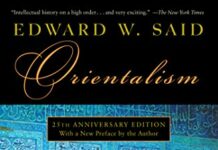
Ebook Info
- Published: 2005
- Number of pages: 352 pages
- Format: EPUB
- File Size: 1.06 MB
- Authors: Edward W. Said
Description
In his final book, completed just before his death, Edward W. Said offers impassioned pleas for the beleaguered Palestinian cause from one of its most eloquent spokesmen. These essays, which originally appeared in Cairo’s Al-Ahram Weekly, London’s Al-Hayat, and the London Review of Books, take us from the Oslo Accords through the U.S. led invasion of Iraq, and present information and perspectives too rarely visible in America.Said is unyielding in his call for truth and justice. He insists on truth about Israel’s role as occupier and its treatment of the Palestinians. He pleads for new avenues of communication between progressive elements in Israel and Palestine. And he is equally forceful in his condemnation of Arab failures and the need for real leadership in the Arab world.
User’s Reviews
Editorial Reviews: Review “These searing essays refract the reality of terrible years through a mind with extraordinary understanding, compassion, insight, and deep knowledge.” —Noam Chomsky“Probably the best-known intellectual in the world. . . . [In these essays] Said writes copiously and urgently about the alarming state of affairs in the Middle East.” —The Nation“Said is a brilliant, complex man who confounds one’s expectations at every turn.” —Rocky Mountain News From the Back Cover In his final book, completed just before his death, Edward W. Said offers impassioned pleas for the beleaguered Palestinian cause from one of its most eloquent spokesmen. These essays, which originally appeared in Cairo’s “Al-Ahram Weekly, London’s “Al-Hayat, and the” London Review of Books, take us from the Oslo Accords through the U.S. led invasion of Iraq, and present information and perspectives too rarely visible in America. Said is unyielding in his call for truth and justice. He insists on truth about Israel’s role as occupier and its treatment of the Palestinians. He pleads for new avenues of communication between progressive elements in Israel and Palestine. And he is equally forceful in his condemnation of Arab failures and the need for real leadership in the Arab world. About the Author Edward W. Said was University Professor of English and Comparative Literature at Columbia University. He was the author of more than twenty books, including Orientalism and Culture and Imperialism (both available in paperback from Vintage Books), and his essays and reviews appeared in newspapers and periodicals throughout the world. Said died in September 2003. Excerpt. © Reprinted by permission. All rights reserved. Chapter OnePalestinians Under SiegeSince September 29, 2000, the day after Ariel Sharon, guarded by about a thousand Israeli police and/or soldiers, visited Jerusalem’s Haram al-Sharif (the Noble Sanctuary) in a gesture designed explicitly to assert his right as an Israeli to visit the Muslim holy place, a conflagration has erupted that continues as I write in mid-November. Sharon himself is unrepentant, blaming the Palestinian Authority for “deliberate incitement” against Israel “as a strong democracy” whose “Jewish and democratic character” the Palestinians wish to change. He says that he went there “to inspect and ascertain that freedom of worship and free access to the Temple Mount is granted to everyone,” although he mentions neither the huge swarm of guards he took with him nor that the area was sealed off before, during, and after his visit, which scarcely assures freedom of access (Wall Street Journal, October 4, 2000). He also neglects to say that on the twenty-ninth the Israeli army shot eight Palestinians dead, or that Israel unilaterally annexed East Jerusalem in June 1967 and that it is therefore under military occupation, which according to international law its natives are entitled to resist by any means possible: it was this truth that triggered the new intifada. Besides, the Temple Mount is supposed by archaeologists to lie beneath two of the oldest and greatest Muslim shrines in the world going back a millennium and a half, a convergence of religious topoi that it would take more than a heavy-booted visit by a notoriously brutal and right-wing Israeli general with Palestinian blood on his hands from, among other massacres that began during the 1950s, Sabra, Shatila, Qibya, and Gaza, to sort out.The Union of Palestinian Medical Relief Committees says that as of November 7, 170 people have been killed, 6,000 wounded: this does not include 14 Israeli deaths (8 of them soldiers) and a slightly larger number of wounded. (A few days later the figure for the dead climbed to over 200.) The earlier figures come from the Israeli organization B’tselem. The Palestinian deaths include at least 22 boys under the age of fifteen and, says B’tselem, 13 Palestinian citizens of Israel who were killed by the Israeli police in demonstrations inside Israel. Both Amnesty International and Human Rights Watch have issued reports sternly upbraiding Israel for the disproportionate use of force against civilians and, according to Phil Reeves in the Independent (November 12, 2000), Amnesty has published another report condemning Israel for harassment, torture, and illegal arrests of Arab children in Israel and Jerusalem. Gideon Levy in Ha’aretz (November 12) notes with alarm that most of the handful of Arab Knesset members have been punished for their vociferous objections to Israel’s policy toward Palestinians; some have been relieved of committee assignments, others are facing trial, still others are undergoing police interrogation, all this, he concludes, as part of “the process of demonization and delegitimization being conducted against the Palestinians,” inside Israel as well as in the Occupied Territories.Normal life (the phrase is somewhat oxymoronic) for Palestinians living in the occupied West Bank and in the Gaza Strip has disappeared. Even those three hundred or so privileged Palestinians with peace process-designated VIP status have lost that status, and like the rest of the approximately 3 million people who endure the double burden of life under the Palestinian Authority and the Israeli occupation regime-to say nothing of the brutality of thousands of Israeli settlers, some of whom turn into the rampaging vigilantes terrorizing Palestinian villages and large towns like Hebron-they are subject to the closures, encirclements, and barricaded roads that impede all movement for them. Yasir Arafat himself is not immune from the indignity of having to ask permission to leave or enter the West Bank or Gaza, where his airport is opened and closed summarily by the Israelis and his headquarters have been bombed punitively by Israeli missiles fired from helicopter gunships. As for the flow of goods into and out of the territories, to say nothing of workers, ordinary travelers, tourists, students, the aged, and the sick: they have been immobilized or, to put it more concretely, imprisoned. According to the UN Special Coordinator’s Office in the Occupied Territories, Palestinian trade with Israel accounts for 79.8 percent of total trade transactions; Jordan, which is next, accounts for 2.39 percent, a very low figure directly ascribable to Israel’s control of the entire Palestine-Jordan frontier (in addition of course to the Syrian, Lebanese, and Egyptian borders). With Israel’s closure, therefore, the Palestinian economy has lost three times the amount of money taken in from donor sources during the first six months of 2000; the losses average $19.5 million per day (Al-Hayat, November 9, 2000). For an impoverished and colonized population dependent on the Israeli economy-thanks to the economic agreements signed by the PLO under the Oslo accords-this is a severe hardship.What hasn’t slowed down is the rate of Israeli settlement-building, which under the supposedly pro-peace regime of Ehud Barak has increased by 96 percent over the past few years, according to the authoritative Report on Israeli Settlement in the Occupied Territories (RISOT). It adds, “1,924 settlement units have been started” since Barak took office in July 1999. This figure does not take into account the enormous and ongoing program of road-building, the constant expropriation of land that that requires, in addition to systematic deforestation, ravaging, and despoiling of Palestinian agricultural land undertaken both by the army and by the settlers. The Gaza-based Palestinian Committee on Human Rights has meticulously documented the “sweepings” of olive groves and vegetable farms by the Israeli army (or, as it prefers to be known, Israeli Defense Force) near the Rafah border, for example, and on either side of the Gush Katif settlement block, which is part of the 20 percent of Gaza still occupied illegally by a few thousand settlers, who can water their lawns and fill their swimming pools while the million Palestinian inhabitants of the Strip (80 percent of them refugees from former Palestine) live in a parched water-free zone. In fact, Israel controls all the water supply of the Occupied Territories, uses 80 percent of it for the personal use of its Jewish citizens, rationing the rest for the Palestinian population: this issue was never seriously negotiated during the Oslo peace process.What of the much-vaunted peace process itself? What have been its accomplishments, and why, if indeed it was a peace process, has the loss and the miserable condition of Palestinian life become so much greater than before the Oslo accords were signed in September 1993? And why is it, as William Orme Jr. of the New York Times noted on November 5, that “the Palestinian landscape is now decorated with the ruins of projects that were predicated on peaceful integration”? And what does it mean to speak of peace if Israeli troops and settlements still exist in such large numbers? Again, according to RISOT, 110,000 Jews lived in illegal settlements in Gaza and the West Bank before Oslo; the number has increased to 195,000 in 2000, a figure that doesn’t include the over 150,000 Jews who have been added as residents to annexed (also illegally) Arab East Jerusalem. Has the world been deluded, or has the overwhelmingly preponderant rhetoric of “peace” been in essence a gigantic fraud?The answer to these questions has been there all along, although either buried in reams of documents signed by the two parties under American auspices, and therefore basically unread except for the small handful of people who negotiated them, or simply ignored by the media and the governments whose job it now appears was to press on with disastrous information, investment, and enforcement policies regardless of what horrors were taking place on the ground. A few people, myself included, have tried faithfully to chronicle what has been taking place from the initial Palestinian surrender at Oslo until the present, but in comparison with the mainstream media and the governments, not to mention huge funding agencies like the World Bank, the European Union, and many private foundations, Ford principally, who have played along with the deception, our voices have had a negligible effect except, sadly, to prophesy what is now taking place. Such complicity and cruelty on such a scale would require the talents of a Swift to dissect.In any case, the disturbances of the past few weeks have not been confined to Palestine and Israel. Not since 1967 has the Arab and Islamic world been as rocked by demonstrations and displays of anti-American and anti-Israeli sentiment as now. Angry street demonstrations are a daily occurrence in Cairo, Damascus, Casablanca, Tunis, Beirut, Baghdad, and Kuwait; literally millions of people have expressed their support of the Al-Aqsa Intifada, as it has been dubbed, as well as their outrage at the cringing submissiveness of their governments. The Arab summit in Cairo in October 2000 produced the usual ringing denunciations of Israel and a few more dollars for Arafat’s Authority, but even the diplomatic minimum-the recall of ambassadors-was not enacted. On the day after the summit, the American-educated Abdullah of Jordan, whose knowledge of the Arabic language is reported to have progressed to the secondary school level, flew off to Washington to sign a trade agreement with the United States, Israel’s chief supporter. Hosni Mubarak of Egypt is too dependent on the $2 billion in annual U.S. aid for him so much as to demur at U.S. policy. Like the others, he needs the United States to protect him from his people far too much for him to oppose Clinton and his peacemaking team of former Israeli lobby officials. Meanwhile the sense of Arab anger, humiliation, and frustration continues to build up, whether because the regimes are so undemocratic and unpopular or because all the basic elements of human life-employment, income, nutrition, health, education, infrastructure, transportation, environment-have so fallen beneath tolerable limits that only appeals to Islam and generalized expressions of outrage will do, instead of a sense of citizenship and participatory democracy. This bodes ill for the future, the Arabs’ as well as Israel’s.Popular wisdom in policy and foreign affairs circles during the last quarter century has had it that Palestine as a cause is essentially dead, that pan-Arabism is a mirage, and that the handful of mostly discredited and unpopular leaders of the Arab countries have seen the light, accepted Israel and the United States as partners, and in the process of shedding their Arab nationalism have settled for a modernizing, pragmatic, deregulated, and privatized globalization, whose early prophet was Anwar al-Sadat and whose influential drummer boy has been the New York Times columnist and Middle East expert Thomas Friedman. When this important commentator happened in late October to find himself trapped in Ramallah, besieged and bombed by the Israeli army, he suddenly woke up for the first time, in more than seven years of columns praising the Oslo peace process, to the fact that “Israeli propaganda that the Palestinians mostly rule themselves in the West Bank is fatuous nonsense. Sure, the Palestinians control their own towns, but the Israelis control all the roads connecting these towns and therefore all their movements. Israeli confiscation of Palestinian land for more settlements is going on to this day-seven years into Oslo.” He concludes that only “a Palestinian state in Gaza and the West Bank” can bring peace, but of course he neglects to say anything about what kind of state it would be, and about ending military occupation, which the Oslo documents rather precisely also said nothing about (New York Times, October 31, 2000). Why he never discussed this in the hundreds of columns he wrote since September 1993, and why even now he doesn’t say that Oslo’s cumulative logic has been to produce today’s bloody results, defies common sense but is typical of the racism and hypocrisy of discourse on the subject.In the meantime the Panglossian optimism of those who took it upon themselves to make sure that Palestinian misery was kept out of the news seems to have disappeared in a cloud of dust, including and above all the “peace” on which the United States and Israel have worked so hard to consolidate in their own narrow interests. Moreover, the old frameworks that survived the cold war have slowly crumbled as the Arab leaderships have aged, without viable successors in sight. Egypt’s Mubarak has refused even to appoint a vice-president, Arafat has no clear successor, and as in the case either of Iraq’s and Syria’s “democratic socialist” Ba’ath republics or Jordan’s kingdom, the rulers’ sons have taken or will take over with the merest fig leaf of legitimacy to cover their dynastic autocracy.A turning point has been reached, however, and for this the Palestinian intifada is a significant marker. For not only is it an anticolonial rebellion of the kind that has been seen periodically in Setif, Sharpeville, Soweto, and elsewhere, it is also part of the general malaise against the new economic order that brought us the events of Seattle and Prague. And for most of the world’s Muslims, its costly human sacrifices belong in the same columns as Sarajevo, Mogadishu, Baghdad under U.S.-led sanctions, and Chechnya. What must be clear to every ruler, including Bill Clinton and Ehud Barak, is that the period of stability guaranteed under the Israeli-U.S.-local Arab regimes’ dominance is now genuinely threatened by vast popular forces of uncertain magnitude, unknown direction, unclear vision. Business as usual, which had long meant increasing the distance between citizen and a controlling power felt to be either alien or a minority of some sort in order to enhance the fortunes of a tiny group of people, has been brought to a standstill for the time being. A rough beast whose hour has come around at last is struggling to be born in a shape that cannot now be accurately forecast. But that it will somehow belong to the unofficial culture of the dispossessed, the silenced, and the scorned, deferred or buried for several decades, seems like a strong likelihood, and that it will bear in itself the distortions of years of past official policy seems equally strong.Ironically enough, it has been the actual geographical map of the peace process that most dramatically shows the kinds of distortions that have been building up while the measured discourse of peace and bilateral negotiations have systematically disguised the realities. Just as ironically, though, in literally none of the many dozens of news reports and television stories broadcast since the present crisis began has there been a map shown to indicate where and why the conflict has taken the exact form in which it has been unfolding. I think it is correct to say that most people hearing phrases such as “the parties are negotiating,” and “let’s get back to the negotiating table,” and “you are my peace partner” have assumed that there is parity between Palestinians and Israelis who, thanks to the brave souls from each side who met secretly in Oslo, have been finally settling the questions that “divide” them, as if each side had a side, a piece of land, a territory from which to face the other. Read more
Reviews from Amazon users which were colected at the time this book was published on the website:
⭐Said takes the middle ground between Chomsky and Finkelstein, between idealism and antagonism to Jews. Said, however, eventually drifted from intellectual rejectionism to antiimperialism toward Palestinian nationalism, and this book definitiely, if understandably, leans toward Muslims. Objectivity and lack of passions being unavailable in this field of study, I recommend an honest advocate of another side, such as Obadiah Shoher’s Samson Blinded: A Machiavellian Perspective on the Middle East Conflict. Shoher, at least, doesn’t idealize America and Israel.
⭐I can’t recommend this text to any reader new to Edward Said, check out Orientalism as its a much better introduction to his scholarly point of view. However, this is a fairly good collection of essays of the Middle East conflict, particularly the current “peace” process. Said provides excellent explanation and interpretation of the Camp David meetings and the Oslo accords, and also scrutinizes the Palestinian leadership. Said was a remarkable professor and and a virtuous man and I am sure his passing is a blow to the Palestinian people.
⭐I picked up this book in 2022 and was completely taken over by the late Dr Said’s insight, accuracy, unapologetic analysis and inherent understanding of the plight of Palestinians. This compilation of essays/ articles were, and continue to be, an accurate reflection of the issues, prejudices and stumbling blocks faced by Palestinians seeking a national identity, a state to call their own and most of all , a home of their own….to live life free without fear, oppression and with dignity.The essays are written in Dr Said’s recognisable and undoubted eloquence… a must read !!
⭐On September 25th, 2003, the Palestinian people lost their most outspoken, influential, and, perhaps, only voice in the United States when Edward Wadie Said lost his battle with leukemia.I have, regrettably, only recently discovered Professor Said’s work so it would be foolish to think that I could possibly draft a fitting obituary. However, the timing and significance of Said’s death cannot be overlooked. Within the last three years of Said’s life, the world has witnessed the beginning of the Palestinian al-Aqsa intifada, the attacks of September 11th, 2001, and the subsequent US invasion of Afghanistan and Iraq. It is in this context that the essays within From Oslo to Iraq and the Road Map have been written.From Oslo to Iraq and the Road Map is a collection of essays written by Mr. Said for the periodicals Al-Ahram, Al-Hayat, and the London Review of Books. The book is aptly split into three sections: * The Second Intifada Begins, Clinton’s Failure * September 11, The War on Terror, the West Bank and Gaza Reinvaded * Israel, Iraq, and the United StatesBecause this book is a collection of essays, the reader enjoys the added benefit of being able to view the tumultuous events of the past three years as a collection of snapshots rather than as one larger portrait. For example, in the essay, “Propaganda and War”, Said expresses optimism regarding plans by the American-Arab Anti-Discrimination Committee (ADC) to launch a massive public relations campaign on behalf of the Palestinian people:”I was pleased to learn from ADC president Ziad Asali that his organization is about to embark on an unprecedented public information campaign in the mass media to redress the balance and present the Palestinians as human beings, as people who have had years and years of military occupation and are still fighting back. This effort has never before been made in the United States: there have been fifty years of silence, which is about to broken.”Unfortunately, “Propaganda and War” was published in Al-Hayat on September 9th, 2001, only two days before those plans were surely scrapped.Said’s willingness to break with the conventional wisdom on the topic of Palestinian autonomy has made him quite a controversial figure. From Oslo to Iraq and the Road Map is no different. While his criticism of US foreign policy and leadership in the War on Terror are certainly no surprise, it is his scathing indictments of Arab and Palestinian leadership that may be most surprising to a Western reader. At a time when many in the Western world are trying to paint the world, and especially the Middle East, as black and white, Said offers a more complex view. As the world wrestles with the legacy of Yasir Arafat, for example, Said complains in November 2001 that Arafat is neither really a terrorist nor a visionary, but is simply an ineffective leader more concerned with his own grip on power than with the plight of his people:”In short, there is no reason at all why Yasir Arafat and his ever-present coterie should grovel at American feet. My suggestion is that Arafat should stop his world tours and come back to his people (who keep reminding him that they no longer really support what he does: only 17 percent say they back what he is doing) and respond to their needs as a real leader must… He must lead the nonviolent protest marches on a daily, if not hourly, basis and not let a group of foreign volunteers do our work for us. It is a self-sacrificing spirit of human and moral solidarity with his people that Arafat’s leadership so fatally lacks. I am afraid that this terrible absence has now almost completely marginalized him and his ill-fated and ineffective Authority…”Said is also unflinching in his appraisal of Arab leadership throughout the crisis. In his early 2002 essay, “The Screw Turns, Again”, Said offers the following:”As for the Arab nonresponse, that has exceeded in disgrace and shamefulness the already abysmally low standards set by our governments for the past fifty years. Such a callous silence, such a stance of servility and incompetence in facing the United States and Israel, is as astonishing and unacceptable in its own way as what Sharon and Bush are about. Are the Arab leaders so fearful of offending the United States that they are willing to accept not only Palestinian humiliation but their own as well? And for what? Simply to be allowed to go on with corruption, mediocrity, and oppression…”Some of the arguments that Said presents can seem repetitive at times but it does not damage the overall value of his unique perspective as a Palestinian-American. In fact, this repetition serves to, not only illustrate the author’s exasperation, but also to remind the reader of the brutal occupation at a time when much of the West appears to have forgotten.Said’s essays, while controversial, present a perspective not often considered. At the very least, the essays contained in From Oslo to Iraq, are sure to spark heated debate and conversation in an arena sorely lacking alternate views and new energy. At most, these essays are a call to action; a call that must be answered.
⭐This set of essays is an exercise in propagandistic alternative history. The questions they raise are not whether what Said comes up with is accurate, but whether they are intended to mislead, taunt, or a little of each.In my opinion, Ed Said is not the first human being to have ever told a lie, merely the first to have told so many of them. He built up an impeccable reputation for dishonesty, racism, and support for terror over a period of decades. He once wrote, “it is one of the great ironies of history that in the middle of the twentieth century – in the Golden age of peoples’ rights to self-determination,” something was “dropped from the map of the world.” Want to guess what that something was? My guess would have been Tibet. But no! It’s the British Mandate! That’s like complaining about dropping Gold Coast in favor of Ghana.Still, there are clear elements of taunting when he constantly calls those who disagree with him liars. Obviously, Israel wants peace. To call the Knesset Speaker a brazen liar for saying so is simply a taunt. And to say that “it’s the classic Zionist ploy to defame people by identifying criticism of Israel with anti-Semitism” is a taunt as well.Said has said that the 1947 Partition Plan was unfair, “based on the minority getting rights equal to those of the majority.” Um, wow. That’s Said’s racism, showing through loud and clear.Said’s favorite targets are those who oppose terror, namely the ones who cooperate with authorities. As Edward Alexander has pointed out, Said has even claimed that “the UN Charter and every other known document or protocol entitles a people under foreign occupation not only to resist but also by extension to deal severely with collaborators.”In the present volume, Said simply spews more of the same trash. He deplores the fact that Ariel Sharon visited the Temple Mount (which happens to be Judaism’s holiest site, is in Israel, and is in Jerusalem, Israel’s capital). Said accuses Sharon of trying to establish a right for an Israeli to visit what he misleadingly refers to as a Muslim holy place.Said has plenty of harsh words for the fact that some Jews live in the disputed West Bank. To him, this is illegal and immoral. But he has no complaints about Arabs living on the same disputed land!Said has nothing bad to say about the dozens of antizionist United Nations resolutions. Instead, he attacks Israel for “flouting” them!Said is quick to tell us that little Israel is just too big. Too big? Um, why would that be? Are ten thousand square miles just more than Israelis can afford? Is it just too much land for 6 million Israelis, 5 million of whom are Jewish and are not desired as potential residents of any neighboring states? Is it too much land, given that there are millions of Diaspora Jews, some of whom might want to move there? Said doesn’t ask this!In any case, about four-fifths of the Mandate (35,400 out of 46,300 square miles) in which Jews were given a Right to settle in 1920 by the international community was closed to Jews by the British in 1921, and given to what is now the state of Jordan. That means the Jews have to make do with only a fifth of the land orignally set aside for them. And sure enough, Said does say something about someone losing 78% of the land! But he says the Arabs lost it! That Israel not only stole 78% of that last 10,100 square miles (as if Jewish land is the only land Arabs can live on), but now wants even more of it! Would you care to guess how many square miles of land the Arabs have?The fact that Israel has any land at all is more than enough justification for Said to call Israel greedy. And he calls it immoral to complain about the terrorist attacks on Israel. After all, as he points out, more Arabs have been dying in these attacks than Jews! Of course, if Arabs didn’t rush out to find Jews and attack them, neither side would be fighting or dying.It’s sad that our species includes some bad apples. The author of this book is one of the very worst of them.
⭐It’s a good read, with short essays, but perhaps not the best place to start for an introduction to the conflict.
⭐イスラム文化を背景に育ち、欧米でも尊敬を集めた著者の10年以上前のエッセー集。今、生きていたら何というかと思わずにはいられません。
⭐
Keywords
Free Download From Oslo to Iraq and the Road Map: Essays in EPUB format
From Oslo to Iraq and the Road Map: Essays EPUB Free Download
Download From Oslo to Iraq and the Road Map: Essays 2005 EPUB Free
From Oslo to Iraq and the Road Map: Essays 2005 EPUB Free Download
Download From Oslo to Iraq and the Road Map: Essays EPUB
Free Download Ebook From Oslo to Iraq and the Road Map: Essays




